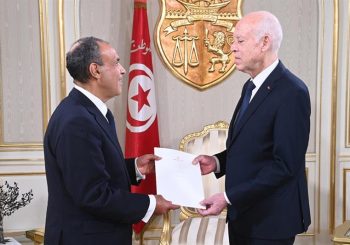In response to the escalating military operations between Iran and Israel, Egyptian Prime Minister Mostafa Madbouly has announced on Monday, 16 June, the formation of a high-level “Crisis Committee.”
This committee is tasked with monitoring the potential repercussions of the conflict across various sectors, including the economy, energy, and national security.
The committee will be chaired by Madbouly himself and will include key officials such as the Governor of the Central Bank and several ministers, including those responsible for Industry, Finance, and Petroleum.
In addition, representatives from the Ministries of Defense, Interior, and Foreign Affairs, as well as members of the General Intelligence Service, will contribute to the committee’s efforts.
Regular meetings will be held to ensure ongoing assessments of the evolving situation and its impacts.
The conflict, which has already resulted in significant casualties, 24 Israelis and 224 Iranians since it began on 13 June, has prompted concerns about energy prices and the stability of international supply chains.
In Egypt, the fallout has led to increased pressure on the domestic energy sector, particularly as regional tensions have disrupted gas supplies.
The petroleum ministry activated an emergency plan on 14 June to manage natural gas priorities.
With the situation developing, Prime Minister Madbouly is intensifying consultations with advisory bodies to gauge the full impact of the conflict.
On June 14, Egyptian Foreign Minister Badr Abdelatty welcomed his German counterpart, Johann Wadephul, in Cairo amid escalating tensions following Israeli strikes on Iran’s nuclear sites that resulted in the deaths of key military leaders and scientists.
Abdelatty condemned the “dangerous and unjustified” escalation, warning it could destabilize the region. The Israeli strikes were the most significant since the 1980s Iran-Iraq war, leading to Iran’s retaliatory drone launches towards Israel. Iran’s President Masoud Pezeshkian vowed a strong response, urging unity behind the government as tensions continue to rise.
Moreover, Egypt and 20 other countries (Jordan, UAE, Pakistan, Bahrain, and others) in the Islamic world have condemned Israel’s military strikes on Iran, urging for immediate de-escalation to prevent further instability in the Middle East.
In a joint statement, the foreign ministries criticized these actions as violations of international law and a threat to regional security. They called for a ceasefire, respect for sovereignty, and peaceful dispute resolution, while emphasizing the importance of diplomacy regarding Iran’s nuclear program.
Conflict Escalation and Responses
On 13 June, Israel intensified its military operations against Iran, deploying around 200 Air Force aircraft to strike approximately 100 targets, including six cities and Iran’s key nuclear facility in Natanz.
Reports indicate that at least 20 senior Iranian military leaders, including the chief of staff of the armed forces, were killed in these airstrikes.
Covert operations by Israeli Mossad agents also targeted Iran’s air defense systems.
In retaliation, Iran launched around 100 drones towards Israel, with Jordan’s military intercepting several that entered its airspace.
By 14 June, the conflict escalated further, resulting in additional casualties in Iran, including the destruction of a 14-story apartment building in Tehran.
As hostilities continued into 15 June, explosions were reported in Tel Aviv and Haifa, with Iranian allies like the Houthis joining the conflict by targeting central Israeli cities.
Israel broadened its targets to include oil refineries and government buildings, while planned nuclear negotiations between Iran and the US were canceled amid the fighting.
By 16 June, missile strikes from Iran killed at least eight people in Israel, with Iran’s Revolutionary Guards claiming a new method of attack that disrupted Israel’s defense systems.
At the same time, the G7 leaders were set to discuss potential de-escalation strategies. Israel’s recent military actions were reportedly prompted by new intelligence suggesting that Iran was nearing the capability to develop a nuclear weapon; however, US intelligence contradicted this, asserting that Iran had not resumed its nuclear weapons program.







Comments (0)